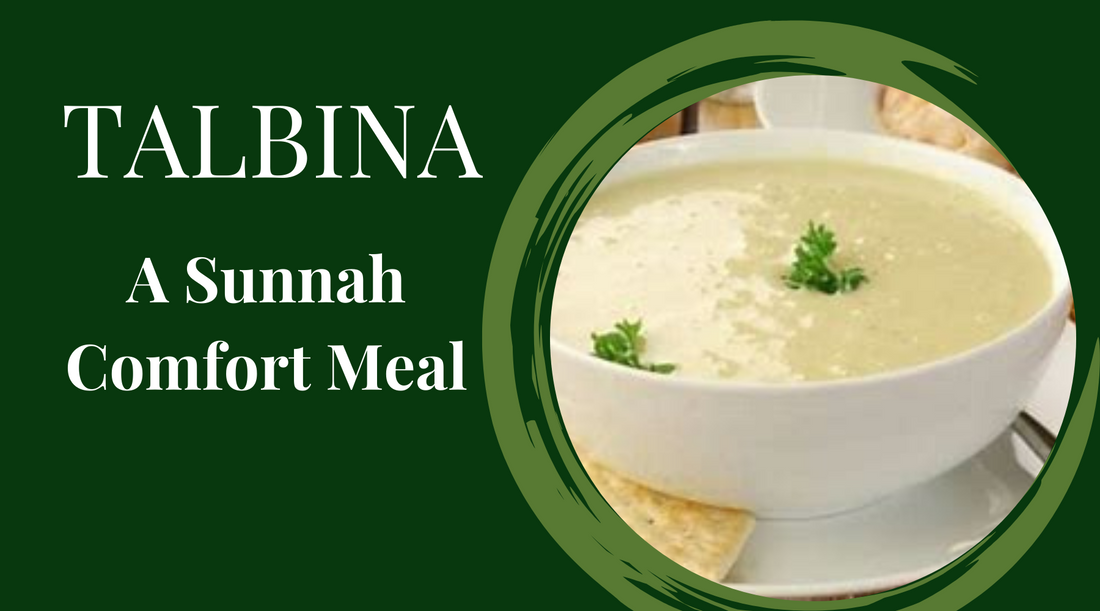Exploring the Remarkable Benefits of Talbina: A Sunnah Comfort Meal
Abstract: Talbina, also known as Barley Broth or Barley Porridge, is prepared by combining barley, milk, and honey. The Prophet Mohammad (PBUH) recommended Talbina for sadness and heart relief in sorrows. Talbina has a promising nutritional and therapeutic impact on human health. It is a rich source of many nutrients and some bioactive moieties. Regular consumption imparts in maintaining better gut and acts as anti-depressive, anti-diabetic, antioxidant, anti-inflammatory, antidiabetic and antihypercholesterolemic. Moreover, it is the most effective food for supplying nutrients and removing toxins from human cells. In this review, the production technology, nutrition, therapeutic potential, proposed prospects, role as a functional food and current knowledge on the subject have been discussed comprehensively. Conclusively, Talbina as functional food could be a way in preventing various health maladies.
- Introduction: In the realm of traditional healing practices, the significance of natural remedies cannot be overstated. One such remedy that has been revered for centuries is Talbina, a wholesome porridge made from barley. Known for its rich nutritional profile and soothing properties, Talbina has gained popularity not only as a comfort food but also as a therapeutic dish. In this article, we will delve into the remarkable benefits of Talbina and uncover the reasons why it holds a special place in the world of holistic well-being.
- Historical background: Aisha(ra), the wife of the Prophet Mohammed (PBUH), used to prescribe Talbina for the depression and also recommended of the people of bereft after the death of a loved one. “I heard the Messenger (PBUH) say, “The Talbina brings rest to the patient’s heart and makes it active, relieving some of his sorrow and grief.” Among Arabs, Talbina food has been used to relieve depression. Since barley can be used in a variety of healthy eating items, there has been an increase in research interest in its use in a variety of food applications in recent years. Barley flour can be used in the manufacturing of different food products and is also used as a traditional Arabic, Kurdish, Persian, and Turkish food item including Talbina, kashk and murri. Barley soup is usually served during Ramadan in Saudi Arabia. Barley has long been a staple food in Northern and Eastern Europe, as well as Asia. Behind wheat, maize, and rice, the fourth most important cereal crop is barley and it ranks among the top ten crop plants on the planet.
- Nutritional Composition: Barley broth (Talbina) is honey-sweetened barley syrup cooked with milk. It is a well-known natural remedy as well as a nutritious breakfast meal. It is an Arabic term that was given to it because of its nutritional composition. Nutraceuticals, or functional diets, have sparked a lot of curiosity in the last ten years. Barley broth being the source of micro and macronutrients has high nutritional value. Furthermore, fermentation of stuff has a positive impact on the nutritional profile of barley broth.
- Nutritional Powerhouse Talbina is primarily made from barley, which is a nutritional powerhouse packed with essential vitamins, minerals, and dietary fiber. It contains significant amounts of magnesium, manganese, phosphorus, and selenium, which are vital for maintaining optimal bodily functions. Additionally, this ancient grain is rich in B vitamins, including niacin, thiamine, and riboflavin, which play a crucial role in energy production and nerve function.
- Digestive Health Support One of the standout benefits of Talbina lies in its ability to promote digestive health. The high fiber content in barley aids in regulating bowel movements, preventing constipation, and improving overall gut health. Furthermore, the soluble fiber in Talbina acts as a prebiotic, nourishing the beneficial bacteria in the gut and supporting a healthy microbiome. This, in turn, can enhance digestion, reduce inflammation, and strengthen the immune system.
- Cardiovascular Health Support Regular consumption of Talbina has been associated with several cardiovascular benefits. Barley is known to contain beta-glucan, a type of soluble fiber that helps reduce cholesterol levels, particularly LDL (bad) cholesterol. By lowering cholesterol, Talbina can help reduce the risk of cardiovascular diseases such as heart attacks and strokes. Moreover, the presence of antioxidants in barley, such as tocotrienols and phenolic compounds, may contribute to reducing inflammation and protecting against oxidative stress, further supporting heart’s health.
- Blood Sugar Control For individuals with diabetes or those aiming to maintain stable blood sugar levels, Talbina can be a valuable addition to their diet. The soluble fiber in barley slows down the absorption of glucose, preventing rapid spikes in blood sugar levels. This can be particularly beneficial for individuals with type 2 diabetes or those at risk of developing the condition. Additionally, the presence of magnesium in Talbina helps improve insulin sensitivity, promoting better blood sugar control.
- Weight Management In this era where obesity rates are escalating, finding effective strategies for healthy weight management is crucial. Talbina can be a helpful ally in this pursuit. The fiber-rich nature of barley promotes satiety and helps curb overeating, aiding in weight loss or weight maintenance. Additionally, the low glycemic index of barley ensures a slow release of energy, providing a steady supply of fuel to the body and reducing the likelihood of sudden hunger pangs and subsequent unhealthy snacking.
- Stress Reduction and Sleep Aid Beyond its nutritional merits, Talbina is also known for its calming and soothing effects on the body and mind. The dish has long been associated with stress reduction and is often consumed before bedtime to promote relaxation and improve sleep quality. Barley contains tryptophan, an amino acid precursor to serotonin, which plays a vital role in regulating mood and promoting feelings of well-being. Furthermore, the slow-release carbohydrates in Talbina contribute to a gradual rise in blood sugar levels, inducing a sense of tranquility and aiding in better sleep.
- Effect of Talbina on mood Talbina has the potential to reduce depression and enhance mood among the subjects. Ingestion of functional foods such as Talbina may provide a mental health benefit to elderly people. Total mood disturbances were significantly reduced by Talbina. This is most likely due to Talbina high nutritional value and sweetness; all of these have been shown to boost mood. Talbina is recommending for those most patients that are deficient in nutrients e.g., magnesium, and zinc. The positive effects of Talbina on mood maybe attributable to these increased intake amounts. Barley broth macronutrients and micronutrients affect mood and cognitive function. Higher intake of these nutrients is associated with less depressed feelings and more energy. So, Talbina food has been used to relieve depression.
Talbina Recipe:
Ingredients:
- 1/4 cup barley flour
- 1 cup Milk/water
- 1 tablespoon honey for flavoring
- Optional: 7 Ajwa Dates for serving
Instructions:
1. Prepare the Talbina Base:
- In a small saucepan, combine the barley and milk/water.
- Stir well to ensure the barley flour is fully dissolved.
- Place the saucepan over medium heat and bring the mixture to a gentle boil, stirring constantly.
2. Cook the Talbina:
- Once the mixture reaches a boil, reduce the heat to low to maintain a simmer.
- Continue to cook the Talbina, stirring frequently, until it thickens to a porridge-like consistency. This usually takes about 10-15 minutes.
3. Sweeten and Flavor:
- If desired, add honey or milk to the Talbina for sweetness and flavor. Stir until well combined.
4. Serve Warm:
- Once the Talbina reaches your desired consistency and flavor, remove it from the heat.
- Transfer the Talbina to a serving bowl and enjoy it warm.
5. Optional Serving Suggestion with Ajwa Dates:
- For added health benefits and according to the teachings of Prophet Muhammad (PBUH), consider enjoying Talbina with 7 Ajwa Dates on the side for protection from Magic and Poison on that day Inshallah.
- Conclusion Talbina, with its exceptional nutritional profile and therapeutic properties, stands as a testament to the wisdom of ancient healing practices. From its digestive benefits to its potential role in cardiovascular support, blood sugar control, weight management, stress reduction, and sleep aid, Talbina offers a multitude of advantages for overall well-being. By incorporating this humble porridge into our modern diets, we can tap into the remarkable benefits that have been cherished by generations, promoting a healthier and more balanced lifestyle.

